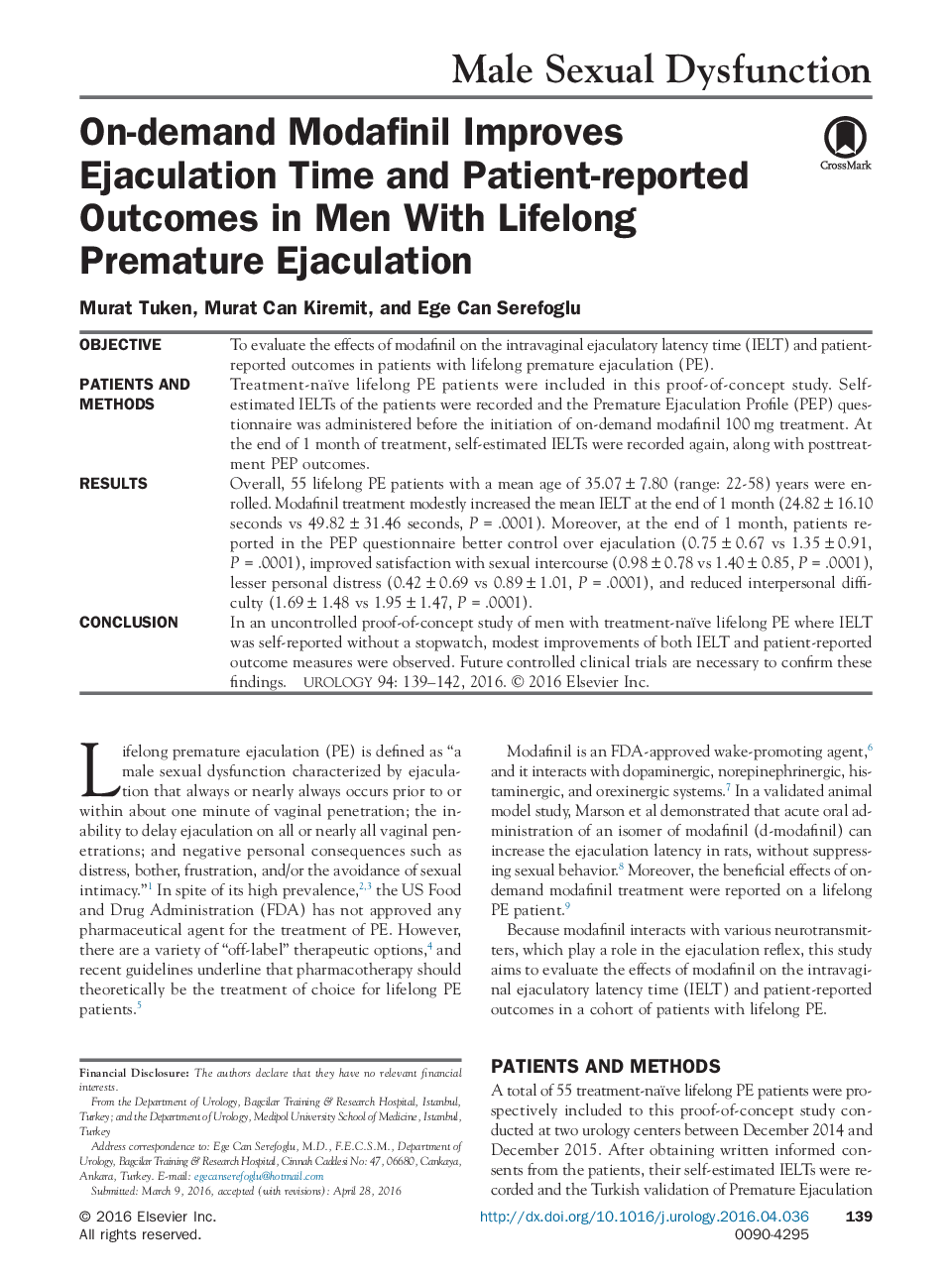| Article ID | Journal | Published Year | Pages | File Type |
|---|---|---|---|---|
| 3897817 | Urology | 2016 | 4 Pages |
ObjectiveTo evaluate the effects of modafinil on the intravaginal ejaculatory latency time (IELT) and patient-reported outcomes in patients with lifelong premature ejaculation (PE).Patients and MethodsTreatment-naïve lifelong PE patients were included in this proof-of-concept study. Self-estimated IELTs of the patients were recorded and the Premature Ejaculation Profile (PEP) questionnaire was administered before the initiation of on-demand modafinil 100 mg treatment. At the end of 1 month of treatment, self-estimated IELTs were recorded again, along with posttreatment PEP outcomes.ResultsOverall, 55 lifelong PE patients with a mean age of 35.07 ± 7.80 (range: 22-58) years were enrolled. Modafinil treatment modestly increased the mean IELT at the end of 1 month (24.82 ± 16.10 seconds vs 49.82 ± 31.46 seconds, P = .0001). Moreover, at the end of 1 month, patients reported in the PEP questionnaire better control over ejaculation (0.75 ± 0.67 vs 1.35 ± 0.91, P = .0001), improved satisfaction with sexual intercourse (0.98 ± 0.78 vs 1.40 ± 0.85, P = .0001), lesser personal distress (0.42 ± 0.69 vs 0.89 ± 1.01, P = .0001), and reduced interpersonal difficulty (1.69 ± 1.48 vs 1.95 ± 1.47, P = .0001).ConclusionIn an uncontrolled proof-of-concept study of men with treatment-naïve lifelong PE where IELT was self-reported without a stopwatch, modest improvements of both IELT and patient-reported outcome measures were observed. Future controlled clinical trials are necessary to confirm these findings.
